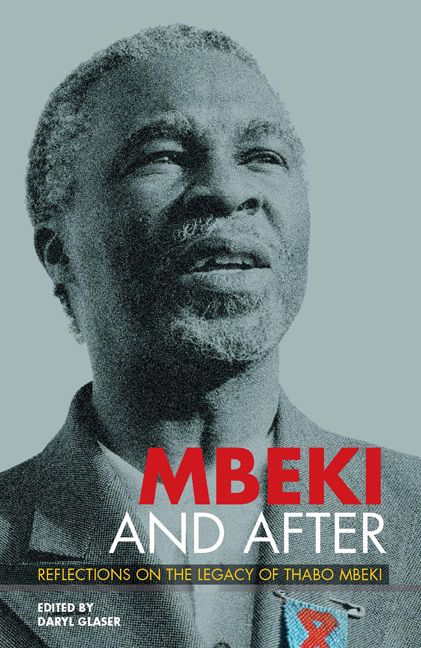4 - Machiavelli Meets The Constitution: Mbeki and the law
from The Mbeki Style Of Governance
Published online by Cambridge University Press: 21 April 2018
Summary
On an occasion such as this, we should, perhaps, start from the beginning. So, let me begin. I am an African. I owe my being to the hills and the valleys, the mountains and the glades, the rivers, the deserts, the trees, the flowers, the seas and the ever-changing seasons that define the face of our native land … The Constitution whose adoption we celebrate constitutes an unequivocal statement that we refuse to accept that our Africanness shall be defined by our race, colour, gender or historical origins. It is a firm assertion made by ourselves that South Africa belongs to all who live in it, black and white. It gives concrete expression to the sentiment we share as Africans, and will defend to the death, that the people shall govern. It recognises the fact that the dignity of the individual is both an objective which society must pursue, and is a goal which cannot be separated from the material well-being of that individual. It seeks to create the situation in which all our people shall be free from fear, including the fear of the oppression of one national group by another, the fear of the disempowerment of one social echelon by another, the fear of the use of state power to deny anybody their fundamental human rights and the fear of tyranny … It creates a law-governed society which shall be inimical to arbitrary rule.
Extract from Thabo Mbeki's ‘I am an African’ speech, delivered on 8 May 1996, Constitutional Assembly, Cape Town
‘I am an African’. It was his finest speech, perhaps even his finest hour. The day that South Africa's draft final Constitution came before the combined houses of Parliament – the Constitutional Assembly – for approval. ‘I am an African’ – such a simple phrase, but with such deep resonance. It seemed to sum up Mbeki and his vision so neatly. The obscurity and complexity of Mbeki the man and the politician suspended for one brief yet potent moment, as he brought poetry to bear on the letter of the law of democratic South Africa's founding document.
- Type
- Chapter
- Information
- Mbeki and AfterReflections On The Legacy Of Thabo Mbeki, pp. 71 - 102Publisher: Wits University PressPrint publication year: 2009



